Common Nursing Care Challenges and How Professionals Overcome Them
realakram20@gmail.com
October 28, 2024

Common nursing care challenges can often feel overwhelming, both for healthcare professionals and their patients. As the backbone of the healthcare system, nurses play a crucial role in patient care, but they frequently encounter obstacles that can complicate their work. From managing high patient-to-nurse ratios to navigating emotional stress and communication barriers, these challenges are real and impactful. However, it’s important to remember that there are effective strategies to overcome them. In this article, we’ll explore the most common challenges faced by nursing professionals and share practical solutions that not only enhance patient care but also promote a healthier work environment. Let’s dive in and discover how to navigate these hurdles together!
Common Nursing Care Challenges
Nursing can be a rewarding profession, but it’s not without its hurdles. Here are some of the most common challenges nurses face daily:
High Patient-to-Nurse Ratios
One of the most pressing issues is the high ratio of patients to nurses. When there are too few nurses to care for a large number of patients, it can lead to burnout and decreased quality of care. Nurses may feel rushed, unable to provide the attention each patient deserves, which can affect patient outcomes.
Communication Barriers
Effective communication is vital in nursing, but it’s often hampered by language differences and patient misunderstandings. These barriers can hinder the nurse’s ability to provide optimal care, making it crucial to find ways to communicate effectively with every patient, regardless of their background.
Emotional and Psychological Stress
Caring for patients, especially those in critical conditions, can take a toll on nurses’ emotional well-being. The stress of dealing with suffering, loss, and the demands of the job can lead to compassion fatigue. Recognizing and addressing these feelings is essential for maintaining mental health and delivering compassionate care.
Rapid Technological Changes
The healthcare landscape is constantly evolving, with new technologies emerging regularly. While these advancements can enhance patient care, they also require nurses to adapt quickly. This can be daunting, especially for those who may not have received extensive training on the latest tools and systems.
Diverse Patient Needs
Every patient is unique, bringing a variety of cultural, social, and economic backgrounds. Nurses must navigate these differences to provide personalized care. Understanding each patient’s needs can be challenging but is essential for building trust and ensuring effective treatment.
By acknowledging these challenges, nurses can begin to find effective strategies to overcome them and improve their practice.
Overcoming Nursing Care Challenges
Facing nursing care challenges head-on is essential for creating a positive environment for both nurses and patients. Here are some effective strategies to tackle these obstacles:
Implementing Effective Staffing Models
To address high patient-to-nurse ratios, healthcare facilities can adopt smarter staffing models. This involves assessing patient needs and allocating resources more efficiently. Encouraging teamwork and collaboration among staff can also lighten the load, ensuring that every patient receives the attention they need without overwhelming nurses.
Enhancing Communication Skills
Improving communication skills is key to breaking down barriers. Training programs that focus on active listening and empathy can help nurses connect better with patients. Utilizing translation services or communication tools can further assist in bridging language gaps, fostering a clearer understanding between nurses and patients.
Promoting Mental Health and Well-Being
Nurses should prioritize their mental health to provide the best care possible. Implementing wellness programs, providing access to counseling, and encouraging regular breaks can help manage stress. Creating a supportive environment where nurses can share their feelings and experiences is also crucial for preventing burnout.
Continuous Professional Development
Staying updated with the latest healthcare technologies is vital for success. Offering ongoing training and workshops helps nurses feel more confident and competent. Encouraging a culture of learning fosters adaptability, allowing nurses to embrace new tools that enhance patient care.
Cultural Competence Training
To effectively meet diverse patient needs, cultural competence training is essential. Providing nurses with the knowledge and skills to understand and respect cultural differences ensures that every patient feels valued and understood. This training can lead to more personalized care and stronger nurse-patient relationships.
By embracing these strategies, nursing professionals can navigate common challenges with confidence, enhancing their ability to deliver high-quality care while fostering a supportive work environment.
Conclusion
In navigating common nursing care challenges, it’s clear that while the obstacles can be significant, they are not insurmountable. By implementing effective staffing models, enhancing communication skills, prioritizing mental health, committing to continuous learning, and embracing cultural competence, nursing professionals can create a more supportive and effective healthcare environment.
The success stories we’ve explored demonstrate that with proactive strategies, nurses can overcome challenges and deliver exceptional patient care. As we move forward, healthcare organizations need to invest in these initiatives, fostering a culture of support and innovation that benefits both nurses and patients. Together, we can pave the way for a brighter future in nursing, ensuring that every challenge is met with resilience and compassion. Let’s continue to support our nurses, so they can continue to provide the quality care our communities deserve.
24 Hours Emergency Call
Medical emergency? We’re here for you 24/7. We respond quickly to every call.



